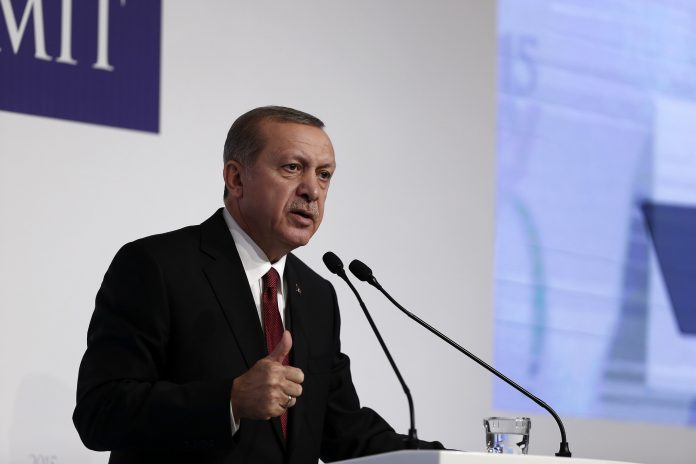Jurors in a New York federal court on November 30 heard testimony from a Turkish-Iranian gold trader who implicated Turkish President Recep Tayyip Erdogan. He said the president had authorised a transaction in a scheme to help Iran evade US sanctions.
Reza Zarrab is cooperating with US prosecutors in the criminal trial of a Turkish bank executive accused of helping to launder money for Iran.
As reported by the Reuters news agency, at the time of the alleged conspiracy, Erdogan was Turkey’s prime minister. Zarrab said he learned of Erdogan’s involvement from Zafer Caglayan, who was Turkey’s economy minister.
Erdogan said earlier on November 30 that Turkey did not violate US sanctions and “did the right thing” in dealing with Iran, CNN Turk reported. A spokesman for Erdogan’s government has called the case a “plot against Turkey”.
But, according to Reuters, Zarrab said that Turkey’s Ziraat Bank and VakifBank were involved in the scheme. While Ziraat denied the allegation, VakifBank could not immediately be reached for comment after business hours on November 30.
The testimony came on the third day of the trial of Mehmet Hakan Atilla, an executive at Turkey’s state-owned Halkbank, who has pleaded not guilty in Manhattan federal court.
US prosecutors have charged nine people in the case, although only Zarrab, 34, and Atilla, 47, have been arrested by US authorities.
According to prosecutors, the defendants took part in a scheme from 2010 to 2015 that involved gold trades and fake purchases of food to give Iran access to international markets.
On November 29, Zarrab told jurors that he helped Iran use funds deposited at Halkbank to buy gold, which was smuggled to Dubai and sold for cash.
Zarrab has said that Atilla helped design the transactions, along with Halkbank’s former general manager, Suleyman Aslan.
Zarrab said that he paid bribes worth more than $50m to Caglayan to further scheme. He said he bribed Aslan as well, but never bribed Atilla. Both Caglayan and Aslan were charged in the case.
According to Reuters, Turkey’s government has previously said that Caglayan acted within Turkish and international law, and Halkbank has said all of its transactions complied with national and international regulations.

